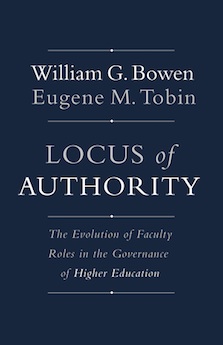By Jonathan Bronitsky
In early-February, Governor Scott Walker unveiled his state’s 2015-17 executive budget of which the most divisive element has been a $300 million cut to the 26-campus University of Wisconsin system. (Typical with any landmark political issue, numbers have become the pliable playthings of polemicists and pundits. The right-leaning insist that $300 million represents a meager 2.5 percent of U-W’s operating purse while the left-leaning maintain that it represents a devastating 13 percent.) Lost in the heat of the moment was Walker’s avowal that the reduction will create a “more efficient” system by liberating administration from “shared governance” with faculty, which previously “kept the university from directly running things.” At first glance, it seems obscenely hypocritical that a staunch grassroots conservative is crusading for power’s centralization and, hence, against its organic devolution to the “local.” That is until you consider reality: The channels of dialogue, planning, and decision-making in America’s institutions of higher education are often blurrier and more vulnerable to external forces than those interwoven into America’s institutions of citizen representation. And that’s really saying something given the mind-boggling complexity and magnitude of ole “Uncle Sam.”
“Governance,” meaning, “where authority is located and how it is exercised,” is the theme of William G. Bowen and Eugene M. Tobin’s most recent collaborative endeavor, Locus of Authority. (The two teamed up with Martin A. Kurzweil back in 2005 to produce Equity and Excellence in American Higher Education, which underscored the national consequences of asymmetric opportunities for lower-income applicants.) They illustrate that the function of faculty—even more so than that of presidents, chancellors, trustees, and regents—has evolved due to not only the shifting aspirations and mounting expectations of the American people, but also a myriad of social, cultural, and economic tribulations. Some academic responses have proven beneficial. Others have proven detrimental. Through a sweeping yet incisive history, Bowen and Tobin seek to distinguish between the two camps, to present best practices for allowing American education to remain an engine of upward mobility and, thus, a guarantor of global competitiveness. Fortunately, the authors are highly qualified to examine this issue of tremendous import. Bowen is president emeritus of the Andrew W. Mellon Foundation and Princeton University. Tobin is senior program officer for higher education and scholarship in the humanities at the Andrew W. Mellon Foundation and former president of Hamilton College.
Bowen and Tobin are also wise enough to acknowledge that there are no silver bullets to vanquish the most formidable adversaries in higher education: rising costs, slumping support for public instruction, calcifying bureaucracy, and declining degree completion rates. For even if the times they weren’t a-changin’, no two schools look exactly alike; there are, after all, significant variations from coast to coast in terms of endowment, pedagogy, size and constitution of student body, and aim and scope of research. That being said, Bowen and Tobin assert that there are particular areas—given the record—in which faculty must play a role (e.g. freedom of speech issues) and others from which it ought to be detached (e.g. budgetary matters).
The strength of Locus of Authority stems from its use of both a macro and a micro lens. On the one hand, it broadly tracks the ways in which American education responded to—or failed to respond to—seminal events and trends: the Great Depression, the transition from humanities studies to scientific research during the postwar period, the rise of disciplinary specialization, the student activism of the 1960s, the economic downturn of the 1970s, the increased reliance on non-tenure track faculty, and the emergence of online technology. On the other hand, more than one-third of the book consists of detailed case studies of the University of California, Princeton University, Macalester College, and the City University of New York. These four institutions were prudentially chosen, not because they typify every American college and university, but because they comprise a diverse spectrum.
Ultimately, Bowen and Tobin contend that most people just want access to a forum—formal or informal—to voice their opinions, even despite awareness that their opinions may bear no consequence. To this end, they argue for a “shared governance” that “blends multiple perspectives and takes full advantage of faculty expertise—but that leaves final authority for most… complex matters with administrators and trustees.” Needed, they elaborate, are more “horizontal” avenues that transcend “departmental lines.” Further, all parties involved, not just faculty, must “reject ‘we’ versus ‘they’ thinking” and be eager “to embrace good ideas generated by others.” While these concepts appear to be common sense, they frequently go unaired and, in turn, unheeded. At the very least, they may temper the fevers of academics like the fictional Jason T. Fitger, the protagonist of Julie Schumacher’s instant classic, Dear Committee Members (2014). Fitger, a struggling professor of Creative Writing at Payne University, spends his days cursing the well-funded and glitzy economics department on the floor above, whose newly-installed “Jacuzzi or bidet” has transformed his already dilapidated English department into a “fetid cavern.”
The truth is that few outside of the Ivory Tower ever think about the internal dynamics of colleges and universities. In fact, not even many graduate students ponder them—that is until they first stand at the gateway to the academic job market, staring wide-eyed into the abyss. As such, Locus of Authority is an obligatory study for anyone involved with higher education. It’s additionally a must-read for anyone concerned with the fate of American society. And fortunately, it’s also one of the more stirring non-fiction accounts you will encounter in recent times brandishing a formidable 14-word, dissertation-esque title.
Jonathan Bronitsky (ΦBK, The Pennsylvania State University, 2006) is the Founder & Managing Director of Gradis Group, LLC, a strategic communications firm. He holds a Ph.D. in History from the University of Cambridge. Penn State is home to the Lambda of Pennsylvania Chapter of Phi Beta Kappa.




